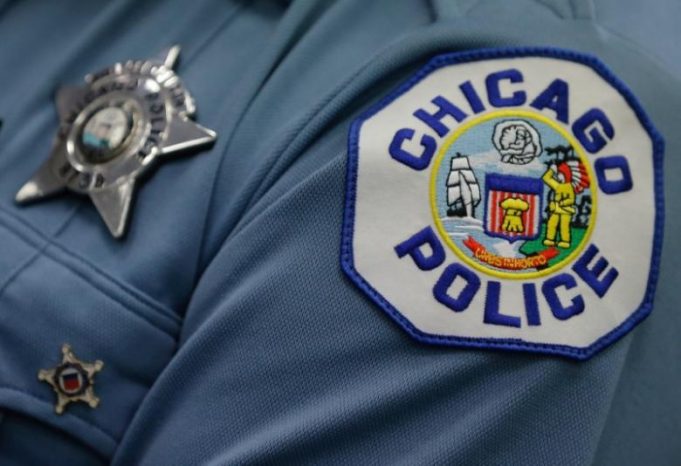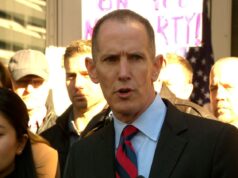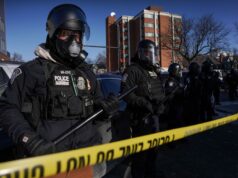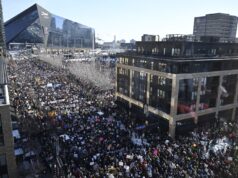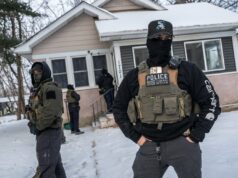Chicago’s police routinely used excessive force, tolerated racially discriminatory conduct and often maintained a “code of silence” among officers to thwart investigations into misconduct, federal officials said in a blistering report released on Friday.
The U.S. Department of Justice civil rights probe began in December 2015 following the release of video footage showing Laquan McDonald, a black teenager, being fatally shot by white police officer Jason Van Dyke. The video’s release sparked several days of protests and led to the ouster of Chicago’s police chief and calls for Mayor Rahm Emanuel to resign.
The McDonald shooting was just one of many high-profile incidents that thrust Chicago and other cities into a national debate over excessive use of force by police against minorities.
“On the basis of this exhaustive review, the Department of Justice has concluded that there is reasonable cause to believe that the Chicago Police Department engages in a pattern or practice of use of excessive force in violation of the Fourth Amendment to the Constitution,” U.S. Attorney General Loretta Lynch said at a news conference, flanked by Chicago’s mayor and police chief.
The report said use of excessive force by Chicago police included officers shooting at fleeing suspects and use of Tasers on children.
The 161-page report came the same week that Baltimore agreed with the Justice Department to change how officers use force and transport prisoners, almost two years after the death of a black man while in police custody sparked a day of rioting.
Justice Department officials have pushed to wrap up ongoing investigations before President-elect Donald Trump is sworn in on Jan. 20. Republican Trump touted himself during his campaign as more friendly to law enforcement.
President Barack Obama’s administration opened 25 civil rights investigations into law enforcement agencies as part of efforts to re-examine and improve U.S. policing practices, particularly in minority communities.
Also on Friday, the Justice Department praised the Philadelphia Police Department for making “tremendous progress” in implementing changes recommended two years ago. Federal officials in March 2015 said problems in training and internal investigations had created “an undercurrent of significant strife” between the city’s residents and police.
Chicago and federal officials have signed an agreement in principle to create a court-enforced consent decree that addresses the problems found during the probe with compliance reviewed by an independent monitor. The consent decree must be negotiated then approved by a federal judge.
Chicago’s mayor, Emanuel, enacted a series of police reforms over the past year, including rolling out a body-camera program and a new use of force policy, efforts recognized by Lynch.
McDonald, 17, was shot in October 2014 but the city did not release the video of the shooting until more than a year later. Van Dyke has pleaded not guilty to murder and is awaiting trial.
Many of the Chicago police department’s problems stemmed from deficient training and accountability, Lynch said.
Investigations into police misconduct were often thwarted by “a code of silence among Chicago police officers … extending to lying and affirmative efforts to conceal evidence,” the report added.
“Some of the findings in the report are difficult to read,” Police Superintendent Eddie Johnson said at the news conference. “Quite simply, as a department, we need to do better.”

